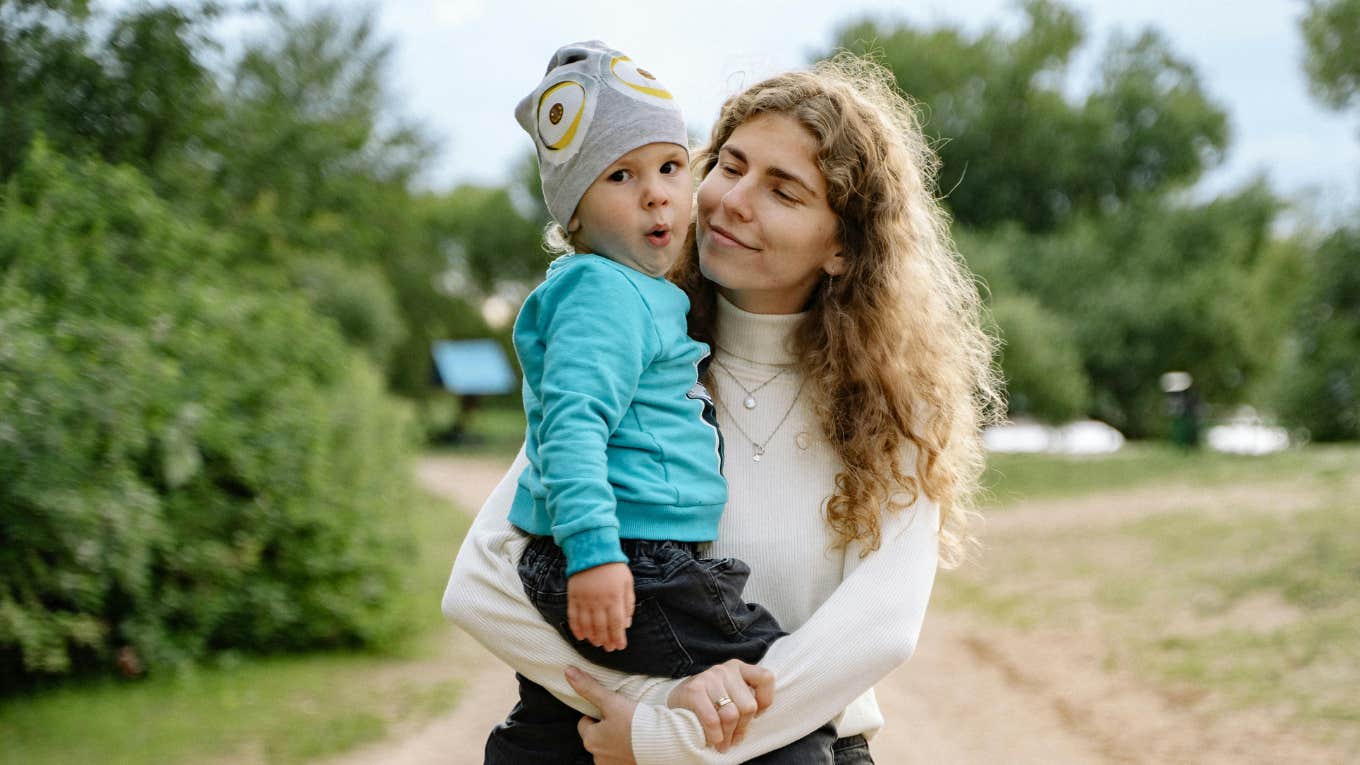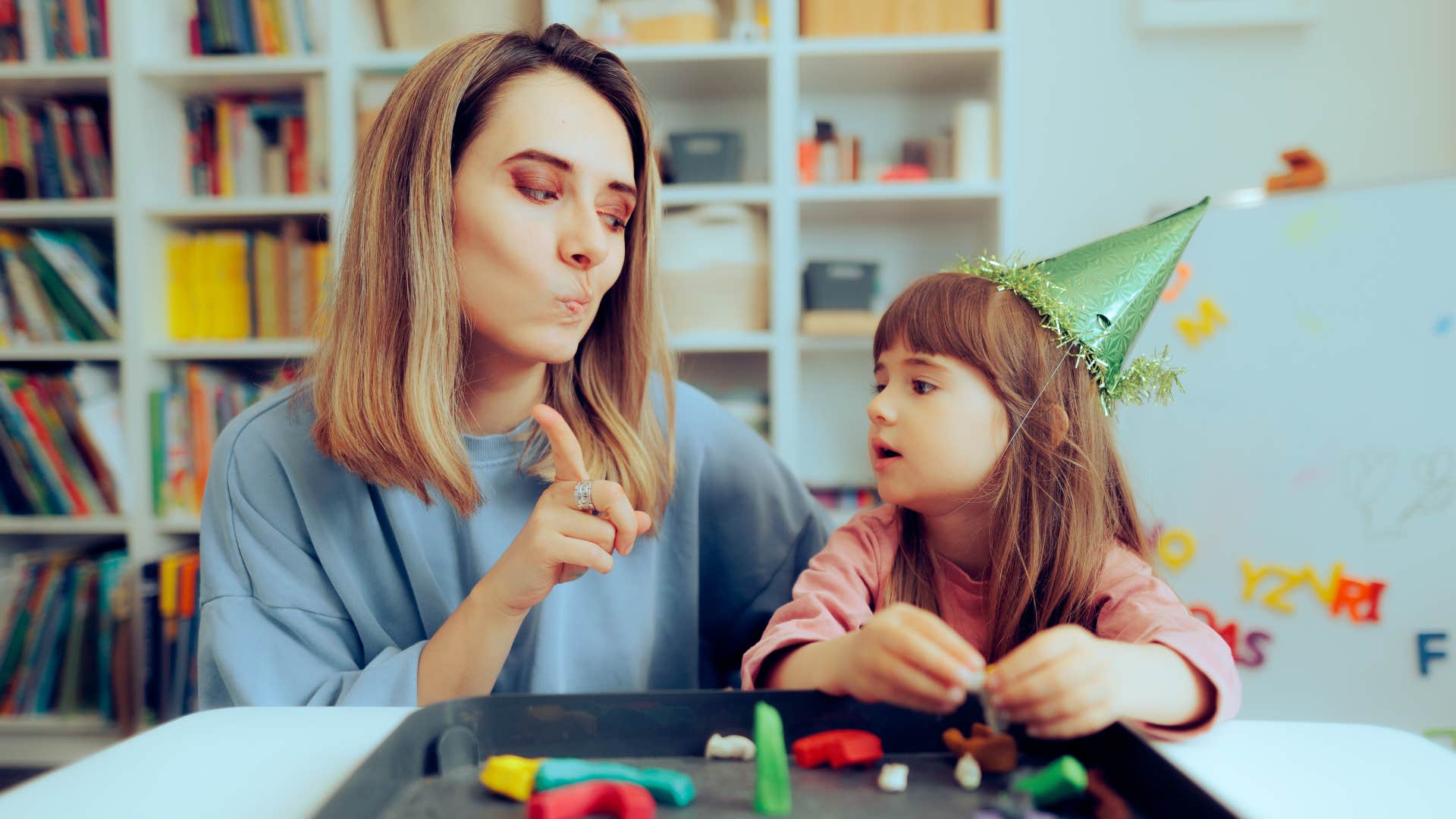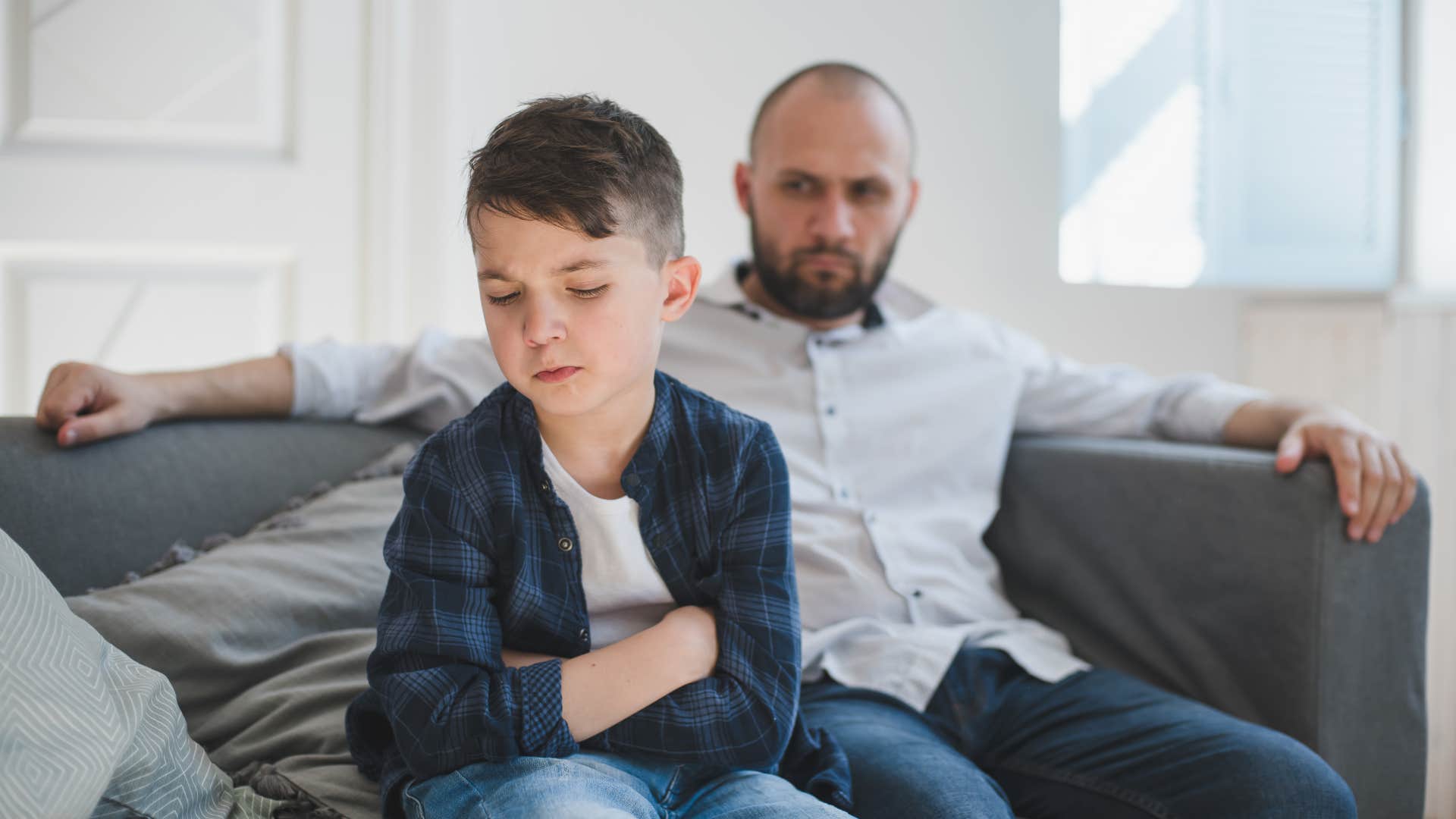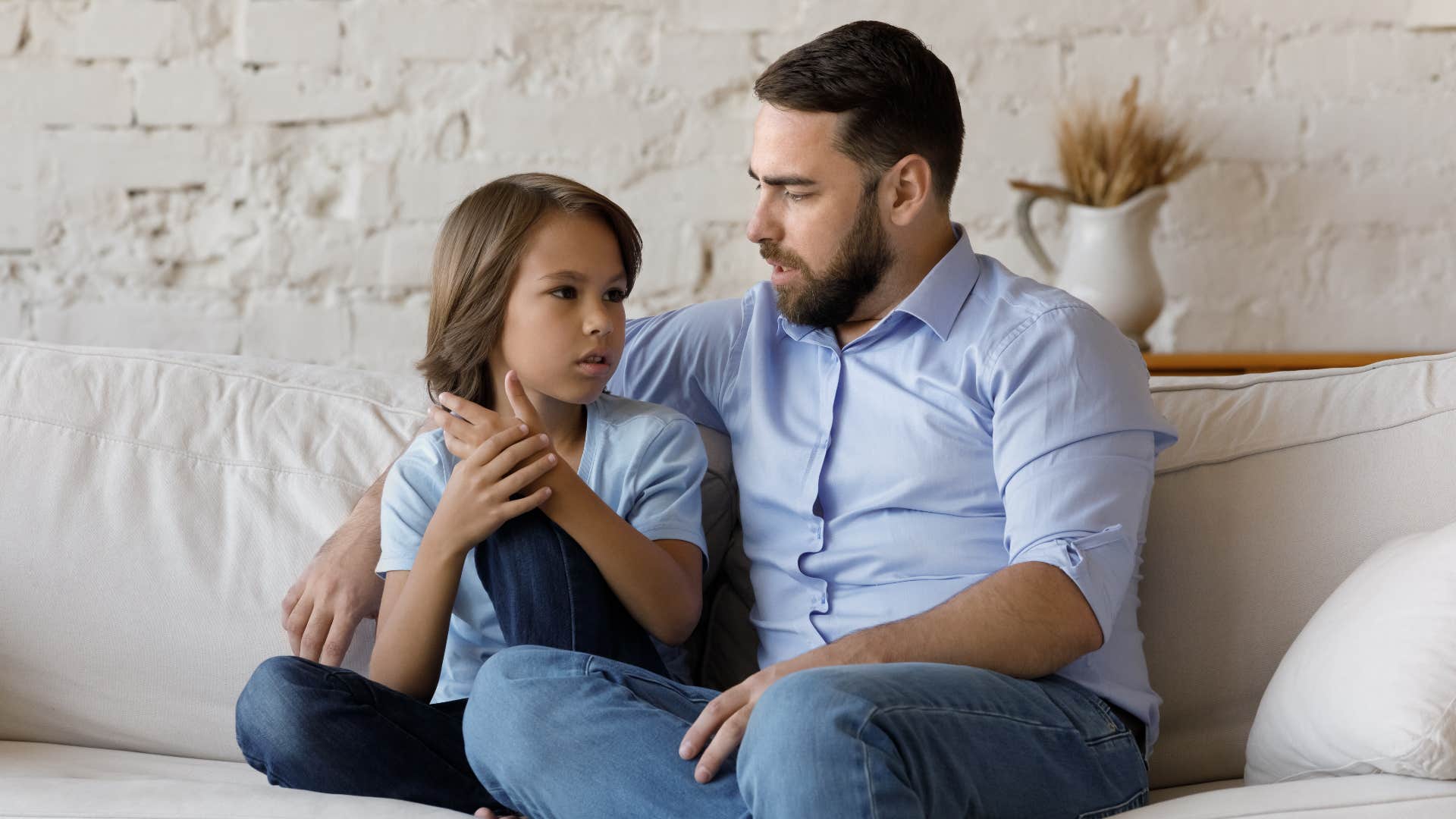Child Psychiatrist Shares The 10 Things She’d Tell Parents If She Wasn’t Afraid Of Hurting Their Feelings
These things might be hard to hear, but parents really need to hear them.
 Yan Krukau | Pexels
Yan Krukau | Pexels Dr. Willough Jenkins, an award-winning child psychiatrist, knows that giving honest feedback can feel like walking a tightrope. When she gives advice that is intended to be helpful, it can sometimes upset well-meaning parents who just want the best for their kids. That's not to say they shouldn't hear it, however.
In a video, Dr. Jenkins shared the exact advice she wishes she could give every parent without the risk of offending them. These things aren't always what parents want to hear, but they're crucial to helping a child develop into the best version of themselves as an adult.
10 pieces of advice a child psychiatrist would tell parents if she wasn't afraid of hurting their feelings:
1. You need to have boundaries
 Nicoleta Ionescu | Shutterstock
Nicoleta Ionescu | Shutterstock
Parents often make the mistake of thinking that setting boundaries means they're being too strict or controlling, but this is far from the truth. Dr. Jenkins said, "Saying yes to everything doesn’t make you a better parent. It makes you exhausted and resentful. Your child needs your clarity more than your compliance."
Boundaries are crucial for proper childhood development. They provide the necessary structure that helps your child grow into a capable adult and sets them up for success for the rest of their lives.
Registered Psychotherapist Jess VanderWier explained, "When you set boundaries, you’re actually acting as your child’s 'external prefrontal cortex.' You’re helping them make sense of the world around them in ways their developing brain can’t fully manage yet."
2. You're doing too much
 fizkes | Shutterstock
fizkes | Shutterstock
As much as parents hate to see their kids struggling, it's necessary for their development. Dr. Jenkins explained, "Overfunctioning doesn’t stop your child from struggling. It just stops them from learning how to cope when they do."
It's okay to let your kids learn how to handle situations on their own, so fight the urge to jump in and solve their problems for them. Instead of solving all their problems for them, teach them that failing is also part of the process. It will not only teach them resilience, but also make their successes that much sweeter.
3. Don't accommodate your child's anxiety thinking you're being kind
 fizkes | Shutterstock
fizkes | Shutterstock
If your child is experiencing anxiety about something, helping them avoid whatever makes them anxious can be more hurtful than helpful. As Dr. Jenkins put it, "Avoidance gives short-term relief, but it makes anxiety grow. Kindness is helping them face the fear with your support."
Anxiety is extremely prevalent among children and teenagers, and it affects 11% of children aged 3-17 according to the CDC. Rather than teaching them to avoid what they're stressed or anxious about, helping them face those feelings by learning how to cope gives them the tools they need to succeed in the future, especially when life gets hard.
4. It's okay if they're mad at you
 Olena_Honcharova | Shutterstock
Olena_Honcharova | Shutterstock
Your children are allowed to be unhappy with you. Is it a great feeling? Definitely not. But they're entitled to be upset with you, regardless of the reason.
Dr. Jenkins assured parents, "That doesn’t mean you’ve failed. It often means you’re doing the hard thing that matters." The decisions you have to make as a parent aren't always going to be popular, but they might be necessary.
5. You're using screens as a crutch
 PeopleImages.com Yuri A | Shutterstock
PeopleImages.com Yuri A | Shutterstock
Screen time is not necessarily a bad thing. There are tons of educational shows and games out there that teach children valuable skills and information. However, letting kids have too much time with screens can quickly turn into a big problem.
Parents often hand their child a tablet or phone to distract them or keep them entertained, but Dr. Jenkins argued that kids need to learn how to be frustrated or bored without one. The Mayo Clinic Health System agreed, stressing that too much screen time can also be harmful to your child's health, as it's been linked to obesity, irregular sleep, and behavioral problems.
6. Your child hears everything you say about them
 Dorde Krstic | Shutterstock
Dorde Krstic | Shutterstock
You may not realize it, but your child is always listening. They hear the comments you make, even if you're joking or you're just needing to vent. You may think they're not paying attention, but they're actually retaining all that information.
Children are naturally curious and tend to "eavesdrop," as it helps them learn about social cues, language, and interactions. However, they can be easily influenced by overhearing you talking negatively or inappropriately, so be mindful of what you say and the tone in which you say it.
7. Sleep matters more than activities, grades, or enrichment
 Ground Picture | Shutterstock
Ground Picture | Shutterstock
It's alright if your child has to miss a soccer practice or give up an hour of studying so they can get a proper amount of sleep at night. Dr. Jenkins said, as a psychiatrist, "I can’t medicate away the effects of not sleeping. It affects behavior, mood, focus, and even self-worth."
Sleep is crucial for children's mental and physical development. If kids don't get adequate sleep when they're young, they can experience problems with performance at work or school, mental health issues, or cardiovascular risks later in life.
8. Your child needs you to stay regulated, not be perfect
 fizkes | Shutterstock
fizkes | Shutterstock
There's no such thing as perfection when it comes to parenting. Don't get fixated on trying to be perfect; focus on keeping your emotions regulated, so that your children stay regulated in turn. It's totally fine to make a mistake, but how you react will determine how kids learn to handle mistakes and disappointment.
Prioritize taking time for yourself, whether it's self-care, exercise, or just relaxing without the kids around. Building the skills to self-regulate isn't easy, but understanding your expectations and reflecting on your mindset in difficult situations are great first steps.
9. You're allowed to ask for help
 NDAB Creativity | Shutterstock
NDAB Creativity | Shutterstock
Raising kids really does take a village. Dr. Jenkins said, "Doing this alone doesn’t make you stronger. It just makes it harder. Your child needs a supported parent, not a superhuman one."
Though we have a tendency to feel guilty or embarrassed to ask for help, there's absolutely no shame in needing an extra hand sometimes. There's no award for doing it all by yourself, and both you and your children will likely suffer the consequences of getting burnt out.
10. Don't confuse protection with control
 fast-stock | Shutterstock
fast-stock | Shutterstock
Controlling parents often operate under the guise of being "protective," but there's actually a big difference. Protective parents provide guidance and support to ensure their child's safety and well-being, while controlling parents want to dominate a child's life out of fear, and they hurt far more than they help.
Dr. Jenkins advised, "Your child needs space to try, to fail, and to figure things out. That’s where confidence grows." Allow your child to have some independence, and don't be afraid to let them make their own choices. Happily give them guidance or advice whenever they want it, but don't take over.

